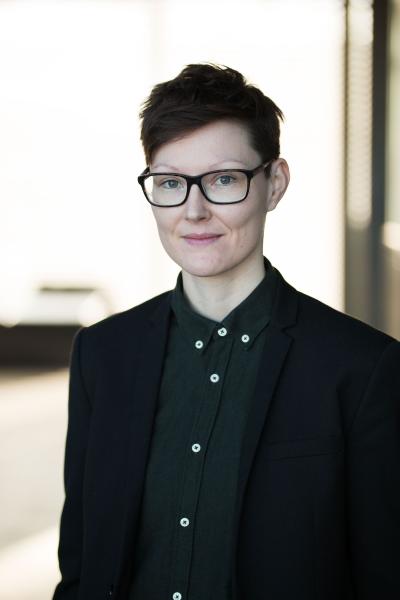Jules Kielmann
Senior Lecturer/Associate Professor at Department of Literature and Rhetoric
- E-mail:
- jules.kielmann@littvet.uu.se
- Visiting address:
- Engelska parken, Thunbergsvägen 3 P
- Postal address:
- Box 632
751 26 UPPSALA
Download contact information for Jules Kielmann at Department of Literature and Rhetoric
More information is available to staff who log in.
Short presentation
In my PhD-thesis "Amalia von Helvig as a Writer and Cultural Transmitter between early 19th-Century Germany and Sweden" (working title), I examine how different discourses of gender and nationality intersect in the work of the German writer and translator Amalia von Helvig, born von Imhoff (1776–1831).
Biography
Since September 2016 PhD-student in Literature
Autumn 2019/2020 Visiting PhD-fellow at the School of Literature, Languages and Linguistics, Newcastle University, UK (financed by The Royal Swedish Academy of Letters, History and Antiquities)
2013 Master of Arts, Scandinavian Literature, University of Freiburg, Germany
2010 Bachelor of Arts, Scandinavian and German Literature, University of Freiburg, Germany
Research
Amalia von Helvig, born Imhoff (1776–1831), is one of the rarely considered female writers during the era of German classicism and romanticism. While she today is mostly known for being a central example for Goethe’s theory of female dilettantism, Helvig was once considered a promising debutant when she published her first poems in Schiller’s prestigious journals Die Horen and Musenalmanach 1798-1800. It was as “the famous German poetess” she was introduced to the literary avant-garde of Swedish romanticism, when she visited one of the central literary salons in Uppsala 1816. After having grown up close to the intellectual circle around duchess Anna Amalia’s court in Weimar and marrying a Swedish military in 1803, Helvig spent the first decades of the 19th century moving back and forth between Germany and Sweden. A child of her time, Helvig had to constantly balance her generation’s ideas about gender, motherhood and femininity on the one hand, and her personal desire to work as a professional writer, critic and artist on the other hand, at the same time as she had to adjust to different cultural and national climates.
In my thesis, I examine how different discourses of gender and nationality intersect in Helvig’s work as a writer and cultural transmitter. I argue that the experiences of both being a woman and living abroad, as well as the experience of loss, transnational friendship and intellectual exchange of knowledge and ideas, had a strong impact on Helvig’s construction of identity and her work as a professional writer and translator.
Publications
Recent publications
- Bärbel Mielke, Subtile Einladung zur Deliberation. Die Romane Emilie Flygare-Carléns (Münchner Nordistische Studien 44), München: Herbert Utz Verlag 2021 (2024)
- Wechselwirkungen (2023)
- Valborg Lindgärde, Arne Jönsson, Walter Haas & Bo Andersson, Sophia Elisabet Brenner (1659–1730). Eine gelehrte und berühmte Schwedin. Sämtliche deutsche Gedichte in ihrem kulturellen Kontext. Germanistische Texte und Studien 105. Olms. Hildesheim 2021. (2022)
- “Thus Shall Our Joy Be Solemn, and Our Pain Fruitful”: Nation, Loss and the Power of Emotions in Amalie von Helvig’s Writings (2021)
- "Anna Amalie (Amalia) von Helvig" (2020)
All publications
Articles
- Bärbel Mielke, Subtile Einladung zur Deliberation. Die Romane Emilie Flygare-Carléns (Münchner Nordistische Studien 44), München: Herbert Utz Verlag 2021 (2024)
- Valborg Lindgärde, Arne Jönsson, Walter Haas & Bo Andersson, Sophia Elisabet Brenner (1659–1730). Eine gelehrte und berühmte Schwedin. Sämtliche deutsche Gedichte in ihrem kulturellen Kontext. Germanistische Texte und Studien 105. Olms. Hildesheim 2021. (2022)
- Power, Myths, Materiality: A Multilingual Reflection over the Conditions for Knowledge Production in Times of Political Turbulence (2017)
Books
- Wechselwirkungen (2023)
- „Gaben, welche sie zur Entfaltung vorwärtsdrängen“ (2020)
- Textkritisk kommentar till August Strindbergs Samlade verk 68, Tal till svenska nationen. Folkstaten. Religiös renässans. Tsarens kurir. (2014)
Chapters
Other

